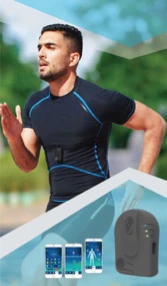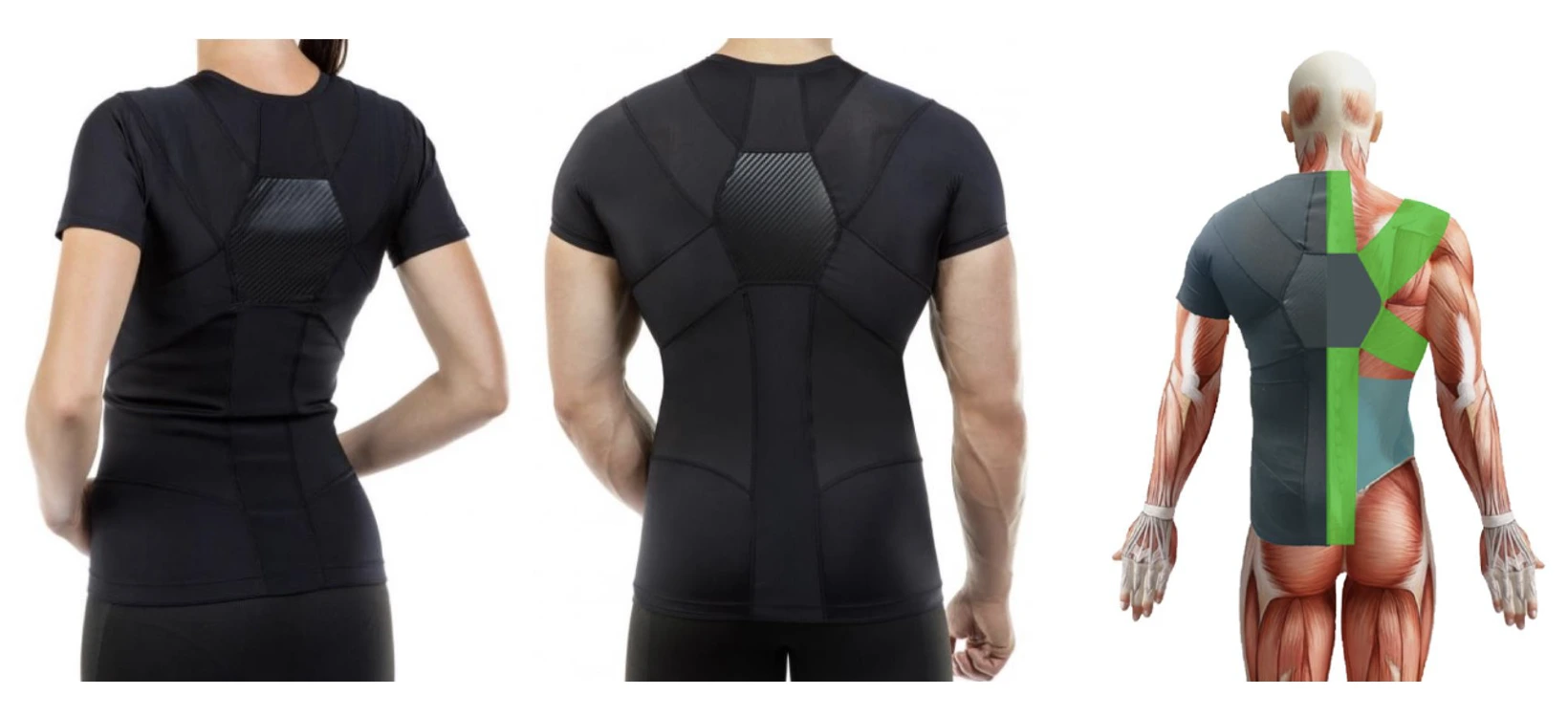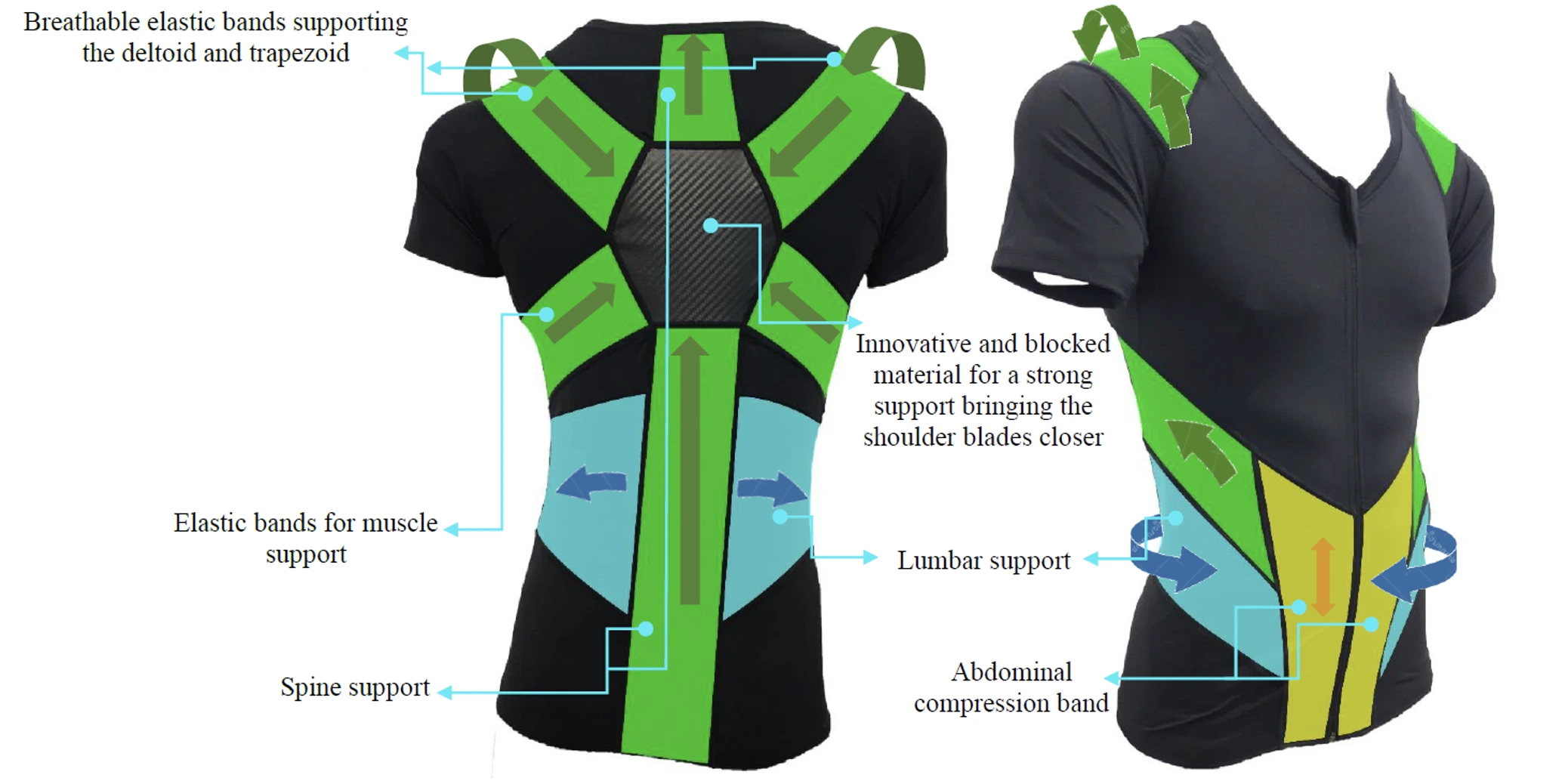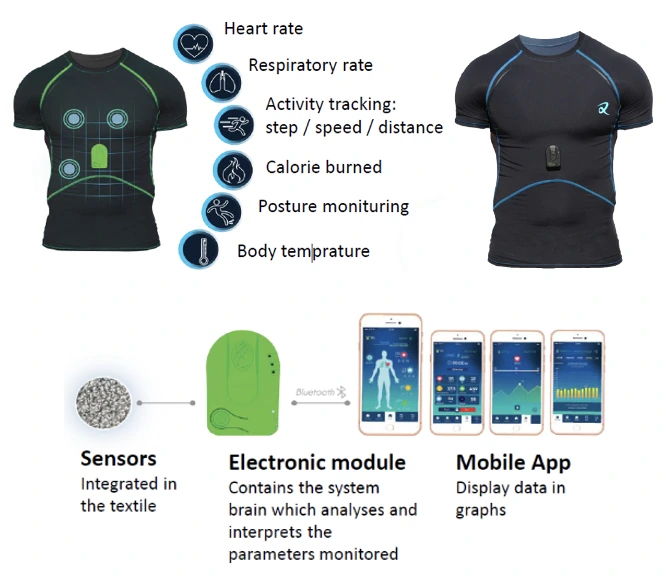In the rapidly evolving world of smart and technical textiles, Yassine Zarroug stands out as a visionary leader and innovator. A graduate of the prestigious ENIM National School of Engineering in Monastir, Tunisia, with a Diploma in Textile Engineering, Yassine brings over 22 years of expertise in technical textiles, having worked with leading European multinationals.
Since founding GHET LAB in 2016, Yassine has dedicated his career to revolutionizing textile engineering with innovative solutions that integrate advanced technology into garments, specializing in sport, health, and well-being applications. Under his leadership, GHET LAB has developed cutting-edge smart, biomechanical, and functional textiles, including groundbreaking products like the E-Health T-shirt and Posture Reminder T-shirt.
In this interview, Yassine shares insights into the journey of GHET LAB, the challenges and opportunities in the smart textile industry, and his vision for the future of innovation in Tunisia and beyond.
Smart, Biomechanical, and Functional Textiles by GHET LAB
GHET LAB began its journey in 2016 in textile engineering specializing in technological developments in the field of sport, health and well-being garments.
GHETLAB began its activity as a technical textile Startup housed at the NEOTEX Technopole of Monastir, integrated into the FABRICA Entrepreneurial technology startup incubator.
GHET LAB specializes in the production of intelligent and functional textile products according to the needs of its customers, by integrating microelectronics, textile tensors, technical fibers and cosmetics:
• Smart Textile
GHET LAB offers clothing that integrates microelectronics into textiles to endow materials with new properties such as the measurement of various biometric parameters: heart rate, respiratory rate, body temperature, calories burned, speed.
• Biomechanical Textile
GHET LAB offers an innovative solution for the development of high performance biomechanical textiles: Orthopedics, Postural support, Contention products, and Muscle strengthening products.
• Functional Textiles
GHET LAB offers an innovative solution for the development of high performance functional textiles by finishing treatment as : Anti-odor product, Anti-stain product, Anti-bacteria product, Dermo-textile product,…
GHET LAB: Latest Innovations and Products
Our latest smart clothing innovations are:
I – E-Health T-shirt: AN AUTONOMOUS GARMENT FOR CONTINUOUS AND REMOTE AUTO-ALERT, DIAGNOSIS AND MEDICAL MONITORING
The present invention is a comfortable, fully machine-washable smart garment designed to continuously monitor and transmit physiological data such as ECG, heart rate, respiratory rate, temperature, blood oxygen saturation (SpO2), Electrodermal Activity (GSR), blood pressure, and blood sugar levels. This garment operates autonomously, without the need for smartphones, computers, or other control devices.
It features an interconnection system made of washable fabrics linking the electronic module to the garment, which includes conductive fabric electrodes that adhere to the user’s skin when dry.
The garment is capable of detecting abnormal health conditions and triggering an automatic alert through an integrated GSM module and algorithm. In case of an emergency, this system enables swift intervention from family members, healthcare professionals, a medical monitoring platform, or ambulance services. All collected data is securely transmitted to a cloud server for storage and processing, monitored 24/7 by a medical team, to ensure constant oversight and personalized care.
Progress:
• Proof of Concept (POC) validated, first clinical test successfully carried out, and industrialization is currently in progress.
• This innovative product is patented: Patent N°WIPO: WO2019164460
WIPO link
• We are working towards achieving CE Medical certification in Europe and are actively seeking a strategic partner to support us in this process.

II – Posture T-shirt: POSTURE REMINDER T-SHIRT
This innovation is a short-sleeved posture shirt that incorporates elastic mapped according to muscle anatomy to support muscles and joints. The elastic bands promote neurological stimulation. The elastic bands apply resistance as they wrap the shoulders, reminding the wearer to stand up straight naturally so as not to feel any tension. Helps promote correct back posture. POSTURE REMINDER T-SHIRT has been designed for those suffering from postural problems and assuming incorrect posture during daily activities. Thanks to its innovative design, it can improve poor posture, lung function and reduce wearer fatigue.
Progress:
We began production and export of this product in 2019, successfully reaching the Italian market and selling on Amazon. The product is now gaining traction and expanding its presence in the market.


Tunisia’s Textile Industry: Strengths and Challenges
The textile industry in Tunisia has long been an important sector of the country’s economy. It is one of the leading industries in terms of exports and employment. Tunisia benefiting from its strategic location near Europe, a skilled and cost-effective workforce, and strong export ties, particularly with the European Union. In addition, the textile industry known for its strong capabilities in the garment sector, including the manufacturing of ready-to-wear clothing, knitwear, and home textiles.
However, the industry faces challenges such as intense competition from lower-cost countries like China and Bangladesh, overdependence on European markets, and environmental concerns related to waste and resource use. Despite government support and a diverse range of products, Tunisia’s textile sector struggles with outdated infrastructure and reliance on imported raw materials, which may hinder its long-term competitiveness if not addressed.
Pros of the Textile Industry in Tunisia
• Tunisia’s geographical location near Europe and other Mediterranean markets
• Labor in Tunisia is relatively inexpensive compared to European countries
• Tunisia has a well-educated and skilled workforce, particularly in the textile and garment sectors.
• The industry produces a wide range of products, from simple garments to more specialized items such as high-end fashion, home textiles, and technical garment.
• The government has taken steps to address Environmental Concerns, such as adopting eco-friendly initiatives.
Cons of the Textile Industry in Tunisia
• Overdependence on the European Market
• Tunisia faces intense competition from countries like China, Bangladesh, and India, where labor costs are even lower.
• There are still challenges related to outdated machinery and production techniques in some sectors of the textile industry especially for the Yarn and Fabric manufacturing.
• Although Tunisia has a large textile-manufacturing base, it still relies heavily on importing raw materials, such as fabrics and yarns, for production.
The Future of Smart and Technical Textiles: An Evaluation
The future of smart textiles and technical textiles in relation to human life holds vast potential, driven by advancements in materials science, electronics, and wearable technology.
Smart fabrics embedded with sensors and energy-harvesting technologies can monitor vital signs, track physical activity, and improve health management, offering personalized, real-time insights.
They also hold promise for improving environmental sustainability through energy-efficient, biodegradable, and recyclable materials.
Moreover, as textiles evolve to become more interactive and responsive, they will provide enhanced comfort and adaptability, such as thermo-regulating clothing and self-cleaning fabrics.
In healthcare, wearable smart textiles could continuously monitor chronic conditions, assist with rehabilitation, and aid in elderly care.
However, challenges remain, including data privacy, security concerns, and ensuring that these technologies are accessible and affordable.
Sustainability in manufacturing and reducing the environmental impact of production processes is also crucial. As technology matures, smart textiles could become an integral part of everyday life, providing multifunctional, comfortable, and eco-friendly solutions that support human well-being. However, addressing ethical and economic considerations will be key to ensuring broad adoption and long-term success.
The future of smart textiles is marked by several key developments:
– Integration of Electronics and Sensors: The evolution of wearable electronics embedded in textiles, such as sensors and conductive fibers, will enhance fabrics’ responsiveness to stimuli like body temperature and movement. Advancements in miniaturization, wireless communication, and energy-efficient power sources will drive innovation in this field.
– Energy Harvesting: Future smart textiles may generate their own energy (e.g., from body heat, movement, or solar power), reducing dependence on batteries and making wearable health and environmental monitoring devices more autonomous.
– Self-Healing and Responsive Materials: With advances in materials science, textiles that repair themselves when damaged (self-healing) and fabrics that adapt to changing environmental conditions (e.g., temperature-sensitive clothing) will become increasingly important, especially in medical and harsh environments.
– Sustainability of Materials: Textiles with biodegradable or recyclable fibers will help reduce waste, while performance-focused textiles (e.g., waterproof, flame-resistant) will offer long-lasting, functional products, improving quality of life across industries.
– Economic Implications: The rise of smart textiles will create new industries, driving job creation and innovation in areas like manufacturing, research, healthcare, fashion, automotive, and aerospace.
– Challenges and Ethical Considerations: The collection of data by smart textiles (e.g., health data) raises concerns about privacy, security, and data ownership. Addressing ethical issues like consent and data protection will be crucial as the technology becomes more widespread.
Why Invest in Smart Textiles?
Investing in technical textiles and smart clothing is important because these innovations offer significant opportunities for advancements in multiple sectors, including healthcare, sustainability, fashion, and manufacturing.
In healthcare, smart textiles can revolutionize patient monitoring and chronic disease management by embedding sensors in clothing to track vital signs, monitor activity, and provide real-time health data, improving overall patient care and enabling personalized medicine.
In sustainability, technical textiles made from eco-friendly, recyclable, or biodegradable materials help reduce the environmental impact of traditional textile manufacturing, promoting greener practices in industries like fashion and automotive.
In fashion and lifestyle, smart clothing offers consumers convenience, comfort, and functionality, such as energy-generating fabrics, temperature-regulating clothing, and self-cleaning materials.
From an economic perspective, investing in these fields can drive innovation, open new markets, and create high-tech jobs, fueling growth in the textile and fashion industries.
Furthermore, Smart textiles can improve productivity and efficiency in industries like sports, military, and even aerospace by offering performance-enhancing solutions. In a world increasingly focused on health, sustainability, and digital transformation, investing in these cutting-edge technologies not only meets market demands but also positions companies at the forefront of future trends, ensuring long-term competitiveness and social impact.
In our case in Tunisia, our strategy is to develop in the smart textile market, because the market is still virgin and highly evolving, and we need to be pioneers in these niche markets.
Market Insights and Future Goals
a) For the POSTURE T-SHIRT :
Currently, I am exporting my posture T-shirts under a white label in Italy and selling on Amazon through an Italian business partner.
My vision for the future of this product in the export market is to launch very soon a branded collection. This will include the development of the entire product range, with a focus on moving towards a connected version. The goal is to incorporate features that enable monitoring and coaching, ensuring users adopt and maintain good postural habits.
I am currently seeking a financial and commercial partner to help bring this project to fruition. With plans to launch a branded collection and expand into the connected version, I am looking for a partner who shares my vision and can provide the necessary resources and expertise to drive growth in the export market. Together, we can develop the product range, establish a strong brand presence, and ensure the success of this innovative solution for postural health.
b) For the E-Health TSHIRT
For the E-Health T-shirt, I am currently in the process of industrializing our Proof of Concept (POC) and actively seeking a partner to support the CE Medical certification of this product in Europe. Achieving CE certification is crucial for ensuring the product’s compliance with European medical device regulations, and I am looking for a strategic partner who can help us navigate this process and bring this innovative product to market.






















